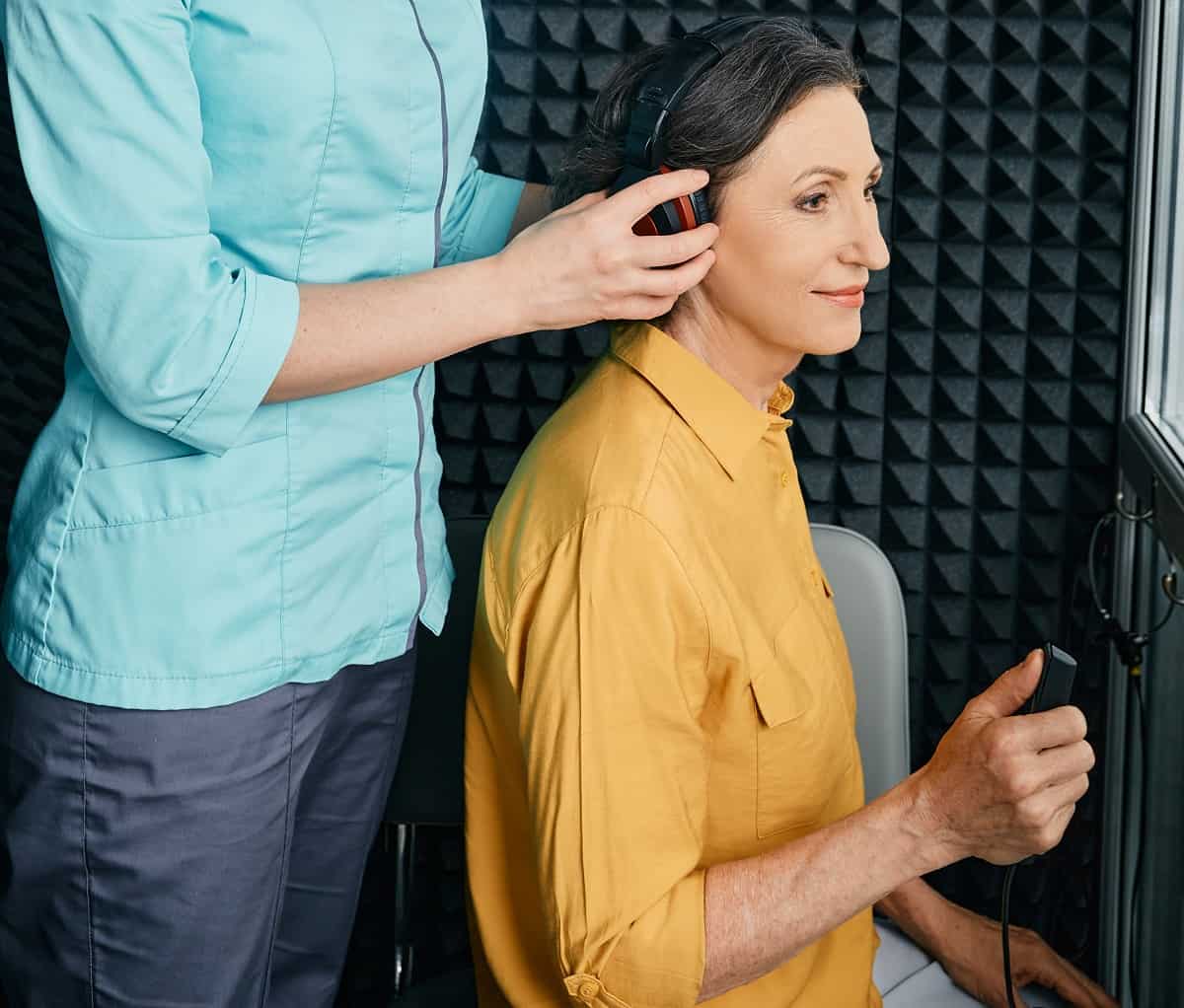- How Smoking Can Harm Your Ears - March 11, 2025
- Succeeding in the Workplace with Hearing Aids - February 10, 2025
- Welcoming the New Year with Better Hearing - January 2, 2025
The CDC estimates that over 37 million people have diabetes and that over a third of adults are prediabtic. Diabetes can have multifaceted effects on health including causing kidney and heart issues. Another under-recognized complication of diabetes is hearing loss. Studies show that people with diabetes can actually be more than twice as likely to develop hearing loss – a chronic medical condition that reduces capacity to hear and process speech as well as sound.
This November is a great reminder to prioritize care for diabetes and hearing health. American Diabetes Month focuses on raising awareness about diabetes and the resources available to support you. If you have diabetes or are prediabtic, it is especially important to protect your hearing health by practicing safety measures you can integrate into everyday life.
Link Between Diabetes & Hearing Loss
Studies show that there is a correlation between diabetes and hearing loss. This includes a landmark study conducted by the National Institutes of Health. Researchers examined the link between diabetes and hearing loss by assessing these health factors among 11,405 people. Participants in this study included people with and without diabetes. Key findings include that among adults with diabetes:
- 21% experienced a mild or greater hearing loss of low or mid-frequency sounds compared to 9% of adults without diabetes.
- 54% experienced a mild or greater hearing loss of high-frequency sounds compared to 32% of adults without diabetes.
- Adults with prediabetes had a 30% higher rate of hearing loss.
This data highlights that people with diabetes were more than twice as likely to experience mild or greater hearing loss of low or mid-frequency sounds. These findings support existing research that identifies diabetes as a risk factor for hearing loss.
Impact of Diabetes on Hearing Health
How diabetes causes hearing loss isn’t exactly known. But experts suggest that it can be related to damage of blood vessels. Diabetes is associated with excess glucose that remains in the bloodstream which is caused by a lack of insulin production or inefficient use of insulin. This can damage blood vessels and nerves throughout the body including in the ear. Blood vessel damage affects circulation and blood flow which can affect how sound is absorbed and processed. This can damage sensory cells in the inner ear which play a crucial role in how sound is processed.
There are thousands of sensory cells in the inner ear. These cells convert incoming sound waves into electrical signals which get carried to the brain. The brain continues processing these signals and assigns meaning to them, allowing us to understand what we hear. Damaged blood vessels can weaken sensory cells, reducing their capacity to perform this essential function. This results in the brain receiving less auditory information which produces chronic hearing loss.
Strategies to Protect Hearing Heath
Fortunately, there are simple ways you can protect your hearing health and reduce your risk of impairment. Implementing safety measures is especially important for people with diabetes and prediabetes whose hearing health is more vulnerable. A few tips you can integrate include:
- Prioritize care for diabetes. Talk to your doctor about your target blood sugar, blood pressure, and cholesterol levels. It is important to know what your goals are so that you can stay within target levels. Also be sure to take prescribed medications and follow any regiments outlined by your doctor.
- Test hearing annually. Hearing tests are painless and noninvasive. They measure your hearing capacities in both ears and identify any hearing loss. Getting your hearing tested every year allows you to monitor your hearing health and identify as well as treat any changes you may experience early on.
- Reduce loud noise exposure. Loud noise is a common cause of hearing loss so reducing your exposure is another useful way to protect your hearing. There are numerous ways you can do this including: maintain low volume settings on electronic devices, wear hearing protection (headphones, earplugs), avoid noisy settings and opt for quieter environments, drive with the windows rolled up to reduce environmental noise etc.
- Increase physical activity. More physical engagement can be as simple as taking a daily walk and stretching which promotes circulation and blood flow.
These tips can help protect your hearing health and wellness. Contact us to learn more about the resources and technologies that you can maximize to support your hearing health.


